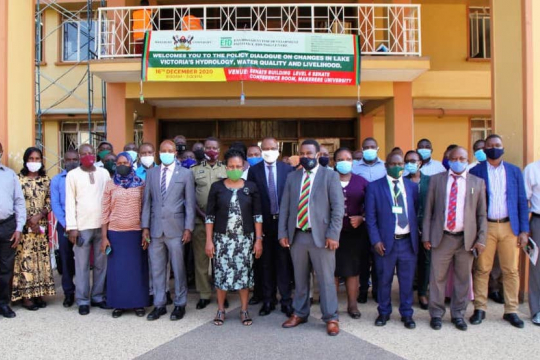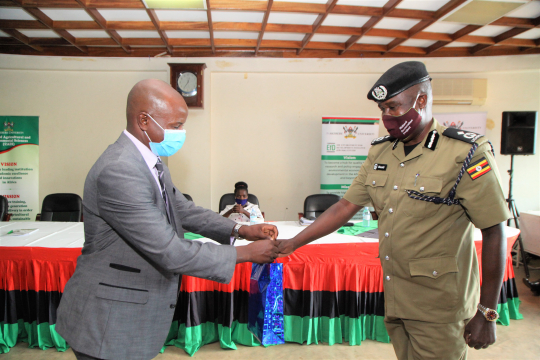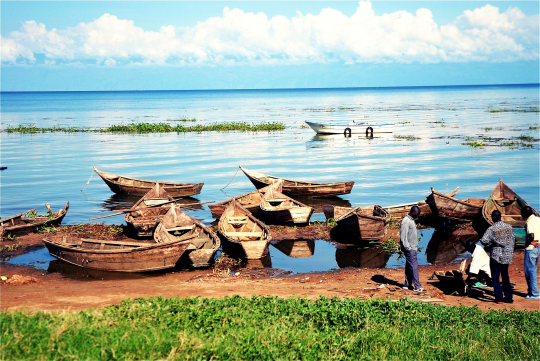EfD Uganda hosted a policy meeting at Makerere University in December 2020. High-level policymakers, researchers, and representatives from the private sector, over 60 people in all, participated physically and online. The discussions concerned the environmental problems facing the great Lake Victoria.
Lake Victoria is a critical natural resource for the population of several countries in East Africa. It provides food, energy, drinking water, transportation and serves as a waste repository of the region. Yet it has been exposed to intense environmental degradation for decades, resulting in ecologic and economic problems as well as health issues.
The fishing industry is suffering from shrinking catches due to pollution and overfishing. In January 2020 the lake flooded its banks, leaving half a million people homeless and ruining infrastructure and property worth billions of shillings in Uganda, Kenya, and Tanzania. A massive power blackout last year and submerging docking areas for ships are other effects of human activities, worsened by heavy rains.
“We have clear laws and the government is anxious to solve the environmental problems. There is for instance a regulated 200-meter buffer zone from the shores. But a growing population and poverty make people disregard that law”, says Edward Bbaale, Director of EfD Uganda.
“The forests and wetlands that serve as distilling agents and climate regulators are being cut down and drained.”
Many of those who break the environmental laws are also poor and vulnerable people and are also most badly affected by flooding and pollution. So, there is no quick and easy solution to the problems.
The policy discussion, which was preceded by several meetings with local government officials over the year, was according to Edward Bbaale very positive and constructive. It resulted, among others, in a policy brief written in non-technical language, highlighting the key recommendations and will be shared within the concerned government agencies and ministries.
“Most pressing is that the government must help people by finding alternative locations for settlements, agriculture, and industries. Within the next five years we should have removed all harmful aspects of the lake”, says Edward Bbaale.
Read the policy brief “Changing Lake Victoria’s Hydrology, Water Quality and Livelihoods”


